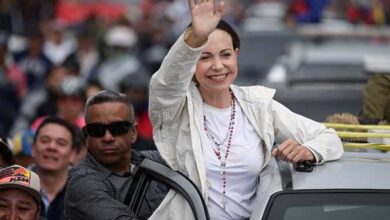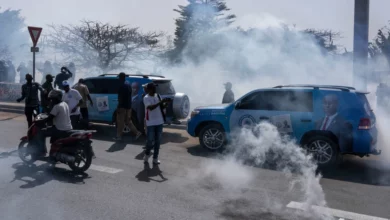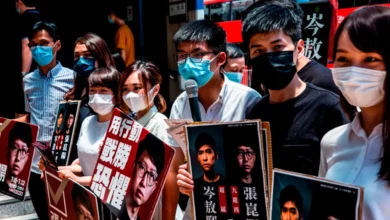In the past month, the country has seen some of the toughest days since the breakout of the 25 January revolution. For the first time, masses started to use violence to assault others and attack establishments to seek revenge or uncover alleged conspiracies.
This escalating violence does not reflect a rift between civil powers and political Islam, or between a violence-obsessed majority and an oppressed minority. Rather, it sheds light on the core arguments different camps have put forward in the name of supporting democracy.
Islamist powers, including the Muslim Brotherhood and Hazemoun, cite the result of the constitutional referendum as proof of their immense popularity — read democratic legitimacy. At the same time, the opposing camp is fighting for a minimum of guarantees to safeguard the rights of the minority in this current state of extreme polarization.
This standoff is a perfect example of the reductionist aspect of the democratic transition paradigm, where democracy is reduced to elections and constitution-writing processes. It is the so-called third wave of democratization in Latin America and Central Europe that has promoted a greater focus on democratic transition as the major solution to end authoritarianism. In these countries, the democratization processes — commonly perceived as positive experiences by the international order — were assessed by criteria including the freedom to form political parties, national dialogue, constitution-writing and holding transparent elections characterized by integrity.
Within this framework, transitional justice was only seen as a complementary tool, one that was primarily concerned with scrapping remaining authoritarian practices through other well-documented procedures. These include purging the media and security apparatuses of corruption, bolstering the independence of the judiciary and conducting prolonged dialogues on reconciliation.
This literalist perception of how democratic transition could be designed and implemented needs to be questioned before the next legislative elections in Egypt, as all political forces have endorsed it without trying to adjust or reformulate the famous democratic transition check list.
Political science literature has played an instrumental role in endorsing and promoting this third wave model. It has even tried to explain the delay in Arab democratic reform by famously qualifying the region as importing “democracy without democrats.” The phrase suggests that the actors don’t genuinely embrace democratic values as a universal humanitarian legacy, did not historically develop relevant institutions to guarantee democratic transition and practices, and, last but not least, consistently failed to produce a legal arsenal to enact the separation of powers, transparency and accountability.
Democracy, as a framework of values that emphasize pluralism and power alternation, cannot be reduced to such procedural practices that fall short of safeguarding the values governing democratic rule, particularly in emerging democracies.
Political studies also disregard forms of expression outside the boundaries of the formal political sphere, and persist in minimizing the relevance of citizen calls around the world to expand the scope of political participation beyond cyclical elections.
The aspiration of participatory democracy, as opposed to procedural democracy, is growing in our region and in many other areas as well. It illustrates the increasing frustration of millions of silenced citizens who feel marginalized by political parties and the electoral processes. Sit-ins and demonstrations in Spain, Greece, Tunisia, Libya and Egypt are, therefore, a deep expression of the need to add a second layer to democratic transformation — the participatory democracy that opens the road to enforcing popular monitoring, and allowing the people to rectify the drawbacks of representative democracy.
Also pertinent to the establishment of democratic transformation is “social democracy,” a term that is increasingly ignored because of the growing crisis of the welfare state, which based its legitimacy on its redistributive functions and the ability to provide resources to the largest number of citizens.
The three levels of democracy — representative, participatory and social — are not mutually exclusive. Instead, they are complementary, particularly in light of the deepening crisis of the market economy, which was often seen as the other face of the representative democracy ideal.
The continuation of mass protests in the Arab region illustrates the desperate need to find a different way to define what democratic transformation should look like. The masses are pressing to be incorporated as players, not just voters; as stakeholders, and not just an audience.
Are we going to continue to ignore these calls to protect the hegemony of the democratic transition paradigm? Or should we start to interpret these signs as features of a burgeoning fourth wave of democratic building processes?
We need to think outside the box and leave aside the alarming minority/majority tensions which present the world as one big ballot box, and see all other expressions of engagement as signs of unwanted chaos.
Dina El Khawaga is a professor in Cairo University’s Faculty of Economics and Political Science, and programs director at the Arab Reform Initiative in Paris.
The article was translated by Dina Zafer.
This piece was originally published in Egypt Independent's weekly print edition.




